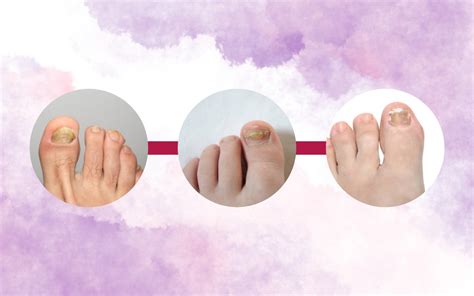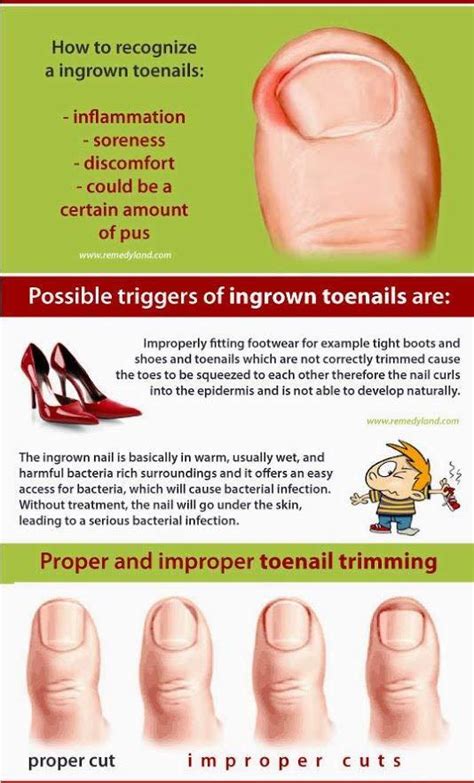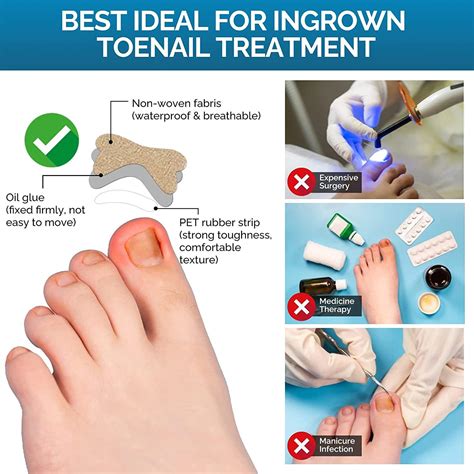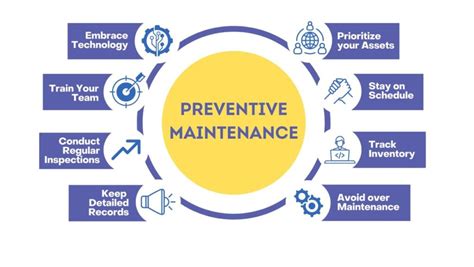Intro
Discover 5 effective ways to fix ingrown nails, preventing infection and promoting healthy nail growth, with remedies for painful toenail and fingernail issues, including natural treatments and self-care tips.
Ingrown nails can be a painful and frustrating problem, affecting millions of people worldwide. The condition occurs when the nail grows into the surrounding skin, causing redness, swelling, and discomfort. If left untreated, ingrown nails can lead to more severe complications, such as infection and scarring. In this article, we will explore the importance of addressing ingrown nails and provide valuable insights into effective treatment options.
Ingrown nails can be caused by a variety of factors, including poor foot hygiene, tight footwear, and improper nail trimming. People with certain medical conditions, such as diabetes, are also more prone to developing ingrown nails. It is essential to take preventive measures and seek medical attention if symptoms persist or worsen over time. By understanding the causes and consequences of ingrown nails, individuals can take proactive steps to maintain healthy nails and prevent future problems.
The good news is that ingrown nails can be treated and prevented with simple and effective methods. From home remedies to professional treatments, there are numerous options available to alleviate symptoms and promote healthy nail growth. In the following sections, we will delve into the world of ingrown nail treatments, exploring the benefits, working mechanisms, and practical applications of various techniques. Whether you are seeking relief from a current ingrown nail or looking to prevent future occurrences, this article will provide you with the knowledge and tools necessary to achieve healthy and beautiful nails.
Understanding Ingrown Nails

Causes of Ingrown Nails
Ingrown nails can be caused by a combination of factors, including: * Poor foot hygiene * Tight or ill-fitting footwear * Improper nail trimming * Abnormal nail growth * Medical conditions, such as diabetes or poor circulation * Genetic predisposition By understanding the underlying causes of ingrown nails, individuals can take proactive steps to prevent future occurrences and maintain healthy nails.Treatment Options for Ingrown Nails

Home Remedies for Ingrown Nails
Home remedies can be an effective and affordable way to treat ingrown nails, especially in the early stages. Some popular home remedies include: * Soaking the affected foot in warm water * Applying topical creams or ointments, such as antibiotic ointment or hydrocortisone cream * Using over-the-counter pain relievers, such as acetaminophen or ibuprofen * Elevating the affected foot to reduce swelling * Avoiding tight or constrictive footwear By trying these home remedies, individuals can alleviate symptoms and promote healthy nail growth.Professional Treatments for Ingrown Nails

Nail Surgery
Nail surgery, also known as nail avulsion, is a minor surgical procedure that involves removing the affected nail plate. This can be an effective treatment option for severe or recurring ingrown nails. The procedure is typically performed under local anesthesia and can provide immediate relief from symptoms.Laser Treatment
Laser treatment is a non-invasive and pain-free procedure that uses high-intensity light to target and destroy the affected nail tissue. This can be an effective treatment option for ingrown nails, promoting healthy nail growth and preventing future occurrences.Prevention and Maintenance

Proper Foot Hygiene
Proper foot hygiene is essential for preventing ingrown nails. This includes: * Washing the feet daily with soap and water * Drying the feet thoroughly, especially between the toes * Trimming the toenails straight across and avoiding cutting them too short * Avoiding sharing personal care items, such as nail clippers or files By practicing good foot hygiene, individuals can reduce the risk of developing ingrown nails and promote healthy nail growth.Wearing Proper Footwear
Wearing proper footwear is also crucial for preventing ingrown nails. This includes: * Wearing shoes that fit comfortably and are not too tight * Avoiding high heels or shoes with narrow toe boxes * Wearing socks made from breathable materials, such as cotton or wool * Changing socks regularly to keep the feet dry and clean By wearing proper footwear, individuals can reduce the risk of developing ingrown nails and promote overall foot health.Conclusion and Final Thoughts

We invite you to share your thoughts and experiences with ingrown nails in the comments section below. Have you tried any of the treatment options or preventive measures mentioned in this article? What were your results, and what would you recommend to others? By sharing your story, you can help others who may be struggling with ingrown nails and promote a community of support and understanding.
What are the symptoms of an ingrown nail?
+The symptoms of an ingrown nail include pain, redness, swelling, and inflammation around the affected nail. In severe cases, pus or discharge may be present, indicating an infection.
How can I prevent ingrown nails?
+To prevent ingrown nails, practice good foot hygiene, wear proper footwear, and trim your toenails straight across. Avoid cutting your toenails too short, and avoid sharing personal care items.
What are the treatment options for ingrown nails?
+The treatment options for ingrown nails include home remedies, such as soaking the affected foot in warm water and applying topical creams or ointments. Professional treatments, such as nail surgery and laser treatment, may also be necessary in severe cases.
